FIELD Project
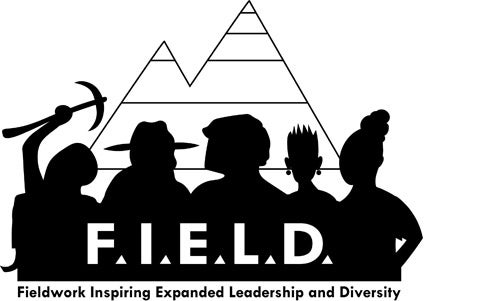
The “FIELD” (Fieldwork Inspiring Expanded Leadership for Diversity) project will make field activity in the geosciences more accessible and inclusive by equipping field leaders with perspectives and skills to recognize and reduce common barriers in field settings. The project team will convene an immersive leadership development institute for field scientists to engage in practical skills training (e.g., bystander intervention, managing cross-cultural relationships) and collaboratively develop new approaches that can be implemented in their own field experiences. We hope in the long term to reduce the exclusionary nature of field culture.
The FIELD Project is a three-year NSF funded project including PIs from nine institutions. The goal of the project is to understand the nature of field culture, understand how field activity can be exclusionary, and to explore potential solutions.
Project Staff
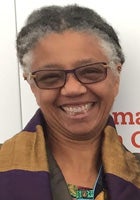
Gillian Bowser
co-PI of the FIELD Project
Colorado State University
Gillian Bowser is a research Scientist at the Natural Resource Ecology Laboratory. Her experience includes AAAS Fellow (2011-2012) in science and diplomacy (Department of State) Office of Marine Conservation; Fulbright specialist La Molina University, Lima Peru. Prior to joining Colorado State University, Dr. Bowser was an ecologist and wildlife biologist or the National Park Service working at seven different national parks including Yellowstone, Tetons, Joshua Tree and Wrangel St. Elias National Parks.
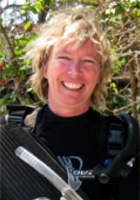
Peggy Fong
co-PI of the FIELD Project
UCLA
Peggy Fong is a marine ecologist who’s research lies at the intersection of community and ecosystem ecology with an overarching goal to use basic knowledge gained from innovative research to inform conservation and restoration of habitats and communities in a changing world. She is a first generation college graduate that coming from an economically challenged background. She has taught UCLA’s Marine Biology Quarter (MBQ), a quarter long field experience for undergraduate students, since 1996. During that time, she transformed the experience from a largely academic program to an intensive research experience that often results in publications with students as first authors. Since 2013, she has been a co-PI on The Diversity Project, a summer field research experience modeled on the MBQ but focused on students from partnering HBCU’s. Among other teaching awards, she has received the University-wide Distinguished Teaching award for mentoring undergraduate research and the Division of Life Sciences Award for her work in DEI at UCLA.
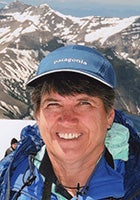
Mary Hubbard
co-PI of the FIELD Project
Montana State University
Mary Hubbard is a structural geologist with interests in the tectonics of mountain belts. Her field sites include the Himalaya, the Alps, the Southern Alps, the Mauritanides, the Congo/Kalahari craton areas of Namibia, the Appalachians, and the Rocky Mountains. She has served as Department Head at both Kansas State University and Montana State University. She is a former Dean of the College of Science and Vice Provost of Global Engagement at Utah State University. Her current field research is centered on the faults, hazards in eastern Nepal. She has led or co-led student field experiences at multiple institutions and in overseas settings. In 2017 she served as a Fulbright Specialist at Tribhuvan University in Kathmandu.
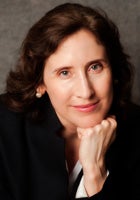
Anne-Marie Nunez
co-PI of the FIELD Project
The Ohio State University
Anne-Marie Nuñez, an associate professor in Higher Education and Student Affairs at The Ohio State University, employs sociological approaches to explore how diverse higher education institutional types, linkages between K-12 and postsecondary education systems, and scientific disciplinary cultures structure equitable postsecondary educational opportunities for historically underserved groups in education.
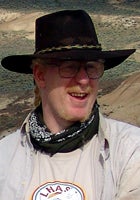
Darrin Pagnac
co-PI of the FIELD Project
South Dakota School of Mines and Technology
Darrin Pagnac is a vertebrate paleontologist, specializing in the development of Miocene terrestrial ecosystems, horse evolution, and the use of field settings and paleontology in STEM endeavors. He has worked at the South Dakota School of Mines and Technology since 2006. Every summer Darrin spends a significant amount of time in field settings around the western United States conducting field research or education. Darrin has oculocutaneous albinism, is legally blind, and has no pigment in his eyes or skin, making field work challenging. Despite these limitations, he adores the field and the outdoors.
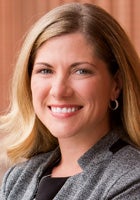
Julie Posselt
co-PI of the FIELD Project
University of Southern California
Julie Posselt is Assistant Professor of Education at the University of Southern California and a National Academy of Education/ Spencer Foundation postdoctoral fellow. Her research examines organizational behavior and institutionalized inequalities in graduate education, STEM fields, and the professoriate. Posselt is the author of Inside Graduate Admissions: Merit, Diversity, and Faculty Gatekeeping (Harvard University Press, 2015), an ethnographic comparative study of faculty decision making in doctoral admissions. Her research is also published in the American Educational Research Journal, Journal of Higher Education, Research in Higher Education, and Chronicle of Higher Education, among others. Her work has been funded by the US Department of Education, Spencer Foundation, Mellon Foundation, and National Science Foundation. Posselt was the 2017 recipient of Early Career Award from the Association for the Study of Higher Education.
Jule has the privilege of conducting ethnographic fieldwork to describe the culture of learning and research in geoscience field experiences, and how cultural norms and everyday interactions in the field create conditions that may inspire engagement and/or marginalize underrepresented groups. The first phase of this research, undertaken in 2017, involved observing a graduate-level geoscience field course over five weeks, and the results will guide the design of the 2018 FIELD Institute. In 2019, Julie will observe a field course led by one of the FIELD Institute participants.
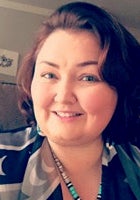
Wendy F. Smythe
co-PI of the FIELD Project
NSF
Wendy F. Smythe, Ph.D. is a first year AAAS Science & Technology Policy Fellow in the Directorate for Education & Human Resources (EHR) in the Division of Human Research on Learning (DRL). She comes to NSF after completing a two-year postdoctoral fellowship at NSF funded STC BEACON Center for the Study of Evolution in Action located at Michigan State University where she started the Native America-Alaska Native Institute. She is a geoscientist/oceanographer that studies microbial communities and their influence on the environment from metalliferous extreme groundwater ecosystems. Wendy is Alaska Native Haida, from Hydaburg, Alaska and works with Indigenous communities to couple STEM with Traditional Ecological Knowledge in K-12 education to increase the number of indigenous people represented in STEM disciplines, increase diversity and innovation, and to teach the next generation of Native leaders. Dr. Smythe is also on the board of directors for Xaada Kil Kuyaas Foundation a 501(c)3 the strives to promote, preserve, and perpetuate the Haida language.
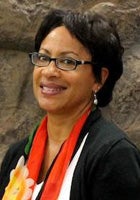
Lisa D. White
co-PI of the FIELD Project
University of California Museum of Paleontology
Lisa White is Director of Education at the Museum of Paleontology at the University of California, Berkeley. She previously held positions of Professor of Geosciences and Associate Dean of the College of Science and Engineering at San Francisco State University. A micropaleontologist by training, she holds a PhD in Earth Sciences from University of California at Santa Cruz and a BA in Geology from San Francisco State University. Active in efforts to diversity the geosciences, Lisa trains and guides underrepresented students in wide-ranging field-based geoscience learning experiences. As the education director at the UC Museum of Paleontology, Lisa develops and disseminates learning materials on evolution and the fossil record, global climate change, and the nature and process of science.
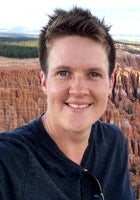
Carolyn Brinkworth
Collaborator on the FIELD Project
UCAR
Carolyn Brinkworth is the Chief Diversity & Inclusion Officer for the University Corporation for Atmospheric Research (UCAR), based in Boulder, CO. Carolyn holds a PhD in Astrophysics and a MA in Education, is on three of the GOLD project teams, and is PI on a funded NSF INCLUDES program bringing together indigenous communities and Western scientists to conduct research projects that address issues of mutual concern around climate change and severe weather events. Carolyn serves on the AGU Task Force for Diversity and Inclusion, on the AMS Board of Women and Minorities, and on the AURA Workforce and Diversity Committee.
Articles and Special Issues
A lack of qualified teachers and low enrollment in the geosciences exist at both secondary and tertiary levels in the United States. Consequently, it is unlikely that students will be able to achieve scientific literacy without an…
We describe our efforts at building programs in Earth and space science over the past decade at four Minority Institutions, Medgar Evers College, Norfolk State University, South Carolina State University and the University of…
Many geoscience fieldworks are not aligned with the curriculum contents reflecting the need to develop more research related to the outdoor learning environment. The purpose of the study was to verify if a fieldwork organized in…
Startling national statistics continue to illuminate the need for increasing the number of underrepresented minority students graduating with degrees in the geosciences. With increasing minority populations in the U.S., diversity…
This article explores learning communities within geoscience field courses that have been purposely establshed to creative inclusion for students with physical disabilities.
Phenomenography is an empirical approach to identifying the qualitatively dis- crete ways in which individuals experience and understand aspects of the world around them. Although established for several decades, the technique is…
This quantitative study explores the differences between six geosciences departments that are successful or less successful in the retention and graduation of female students.
Although there has been a welcome increase in discussion about gender disparities in science, technology, engineering, and mathematics (STEM), broad participation of women in STEM will not be achieved until institutions are transformed. A long-range view is needed to change the rules of the game…
People with disabilities make up the largest minority population in the U.S. yet remain sorely underrepresented in scientific disciplines that require components of field-based training such as the geosciences. This paper provides…
This commentary examines the role faculty play in broadening participation in the geosciences through the implementation of equitable and inclusive pedagogy.
Navigating a field based learning environment presents many challenges for students with physical disabilities, this article explores the outcomes of a field trip experience that was designed for students with disabilities.
Decades of science education research have provided us with a variety of tools to deal with the cognitive processes behind our students’ learning. However, we have placed much less attention on student affect, the feelings,…
Taking a critical, performative stance, this study aims to advance our understanding of diversity management enhancing ethnic equality at work. Relying on a multiple-case study, we inductively identify organizational practices that foster the valuing of multiple competencies and the ability to…
Summer camps have proven to be effective tools to engage students in the geosciences. Findings from this study highlight perceptions and experiences of middle school students from predominantly African American school districts in…
An effective partnership with Minority Serving Institutions (MSI) has been established with the U.S. Department of Commerce (DOC), National Oceanic and Atmospheric Administration (NOAA). Building on a commitment to increase…
Geoscience research is a fundamental portal through which geoscience knowledge may be acquired and disseminated. A viable model to introduce, stimulate, and prolong geoscience education has been designed and implemented at the New…
Discusses historical context of geosciences field work in the past to the current state. This is an introduction to a group of special papers that outlines the current trends taking place within geoscience disciplines.
To equip undergraduates with needed background, instruction in geospatial science was integrated across curricula and courses in the Department of Forestry and Environmental Resources at North Carolina State…
Laboratories serve as an integral part of geoscience education at most colleges and universities. While anecdotal evidence supports the beneficial impact of laboratories on science class learning, little quantitative research backs…
This study examines the effects of an extended authentic research experience on students’ understanding of the nature of science (NOS) and self-efficacy toward science. The curriculum of an introductory…
This article offers a set of design principles distilled from the Building Engineering and Science Talent (BEST) examination of over 100 programs with documented success in recruiting and retaining minority students in sciences,…
Employers have experimented with three broad approaches to promoting diversity. Some programs are designed to establish organizational responsibility for diversity, others to moderate managerial bias through training and feedback, and still others to reduce the social isolation of women and…
This commentary examines the use of Spanish-English bilingual geosciences communication within the United States as a way to broaden information about the discipline and inspire youth to develop a passion for STEM careers.
The Geosciences Institute for Research and Education at the University of Michigan–Dearborn has been an example of a successful and effective model in increasing the participation of underrepresented groups in the geosciences. The…
Out of all the physical sciences, earth sciences has the lowest participation of underrepresented minorities. Past research on factors contributing to the lack of diversity in geosciences, has focused on inadequate teacher preparation, lack of relevance or undefined career path, isolation and…
Historically Black Colleges and Universities (HBCUs) attract, retain and award science degrees to African Americans at a higher rate than majority institutions. Because they offer life-changing and career-orienting experiences for…
Geoscience department websites are a public representation of the department and discipline. This exploratory study investigated the characteristics and culture communicated about geoscience departments through their website…
Geoscience faces dual recruiting challenges: a pending workforce shortage and a lack of diversity. Already suffering from low visibility, geoscience does not resemble the makeup of the general population in terms of either race/…
Eighteen middle and high school students with visual impairments participated in a weeklong field-based geology summer camp. This paper reports the curriculum, strategies, and what the students learned about Earth science by…
We explored students’ conceptions of plate tectonics using a combined qualitative and quantitative approach consisting of multiple-choice ConcepTest questions, ques- tionnaires, and interviews. When shown schematic images…
Native American nations in the United States have a unique legal status that is rooted in a complex relationship between the United States federal government, individual state and local governments and tribal authorities. Although…
Geoscience education researchers are working to understand how we can most effectively increase our overall geoscience workforce capacity. The present study employed an inductive approach to explore the critical experiences that…
Recent efforts to increase diversity within the geosciences, do coincide with how geoscientist are being portrayed in academic textbooks. This article reexamines previous efforts that analyzed the presence of racially diverse geoscientist in physical geology textbooks. Although there was an…
Research methods and underlying theories for research designs that integrate quantitative and qualitative approaches (i.e., mixed methods) are well documented in the field of education research. What is missing in the literature is…
Visual penetrative ability (VPA) is a basic skill for any geology undergraduate student and is also required in many introductory laboratory exercises designed for nonmajors. This is the ability to visualize the three-dimensional (…
Interest is a complex interplay between affective and cognitive components that drive motivation. Over decades of work in the educational psychology community, a theoretical framework has emerged that explains this complex…
Data available from the National Science Foundation Division of Science Resources Statistics demonstrate that since 1966 fewer bachelor's, master's, and Ph.D. degrees have been awarded in the geosciences than in any other STEM…
In 2014, the Geological Society of America sponsored an Accessible Field Trip, designed to demonstrate best practices in accommodating a wide variety of participants with disabilities during a field experience. During the trip, an…
Summer programs are a common strategy for increasing interest in STEM (Science, Technology, Engineering, and Math) careers among K-12 students. Here we report four years of results from a two-week program designed to expose…
Researchers participated in a week long field experience for high school students to increase the pipeline of diverse students into the geosciences major. Surveys were conducted with students and their parents to understand what the participants had learned about geosciences. About 56% of…
To motivate student learning, the affective domain—emotion, attitude, and motivation—must be engaged. We propose a model that is specific to the geosciences with theoretical components of motivation and emotion from the field of…
High school students in a large urban area, undergraduate students, and geoscience faculty at a local college used a place- based pedagogical approach to engage in real geoscience problem-based inquiry in a local urban park. The…
A model deployed at Savannah State University (SSU) for enhancing diversity in the geosciences provides much needed African-American role models in the sciences for school aged children in the surrounding community. The most common…
The University of Texas Institute for Geophysics and Huston-Tillotson University collaborated on a proof of concept project to offer a geoscience course to undergraduate students and preservice teachers in order to expand the scope…
Place-based education is locally situated, experiential, and transdisciplinary. It is informed not only by scientific knowledge of places and regions, but also by the humanistic meanings and affective attachments (senses of place)…
Unlike other informal sites, fossil parks provide visitors collecting opportunities that result in ownership of a small number of fossils. In 2003, we investigated the first three identified U.S. fossil parks at Hamburg, New York;…
Recognizing the relevance that fieldwork and field trips have in the teaching of geosciences and related learning processes, this study presents two geological fieldwork studies that were established with Portuguese secondary…
The Geosciences Awareness Program (Project GAP), a collaboration between the Ohio State University and Columbus State Community College, was designed to broaden the participation of underrepresented groups in geosciences at both…
The National Research Council’s report, Discipline-Based Education Research: Understanding and Improving Learning in Undergraduate Science and Engineering (Singer, Nielsen, & Schweingruber, 2012), states…
AGI estimates that 275,000 physical geology text books are sold in the United States per year. We selected 15 texts from nine different publishers. Data was collected from photos with scientists. Gender data was divided into male,…
Using a conceptual framework constructed around self-efficacy, this study explores specific recruitment programs that may contribute to the development of self-efficacy for students of color in the geosciences. This mixed methods…
We describe a philosophy and process by which cultural awareness and traditional ways of knowing were incorporated into courses on communicating ocean sciences for college and graduate students in Hawai‘i. The result is a…
This article presents an assessment of a field camp experience that focuses on a more relevant curriculum for the students being served today. These efforts are being made to impact the declining numbers of students interested in geoscience majors.
This paper presents an instructional strategy for engaging students with the critical exploration of values in introductory geoscience courses. It is argued that the consideration of values (i.e., abstract expressions of desirable…
The Rural Alaska Honors Institute (RAHI) is an intensive, six-week residential high school-to-college bridging program aimed at preparing talented rural Alaska youth for the social and academic challenges of college. Since its…
First year Geology students at the University of the Witwatersrand experience problems with both three-dimensional and “four-dimensional” (or time) visualization when attempting to interpret geological maps. These difficulties have been addressed by the introduction of hands-on modeling…
The geosciences continue to lag behind the other sciences in both diversity and degree completion rates of students transferring from two-year colleges (2YCs). Critical to strengthening the transfer student…
In response to calls for research into effective instruction in the Earth and space sciences, and to identify directions for future research, this systematic review of the literature explores research into…
This paper examines past and current experiences with fun and playfulness of participants in two summers of an NSF funded summer research experiences for undergraduates (REU) geosciences program. Thirty students responded to…
Despite gains over the last decade, the geoscience student population in the United States today continues to lag other science, technology, engineering, and mathematics disciplines in terms of diversity. Minority-serving…
Meeting the future demand for a qualified geoscience workforce will require efforts to increase recruitment, retention, and graduation of an increasingly diverse student body. Doing this successfully requires renewed attention to…
There is a persisting gap in the participation of women in atmospheric science (ATS), particularly at the higher levels of ATS education and occupations. This gap raises questions about ATS women’s career motives, plans, and…
Mentoring relationships are crucial in the development of student scientists. The purpose of this study was to identify the role of mentors in supporting career satisfaction among students in Earth System Sciences (ESS). Attendees…
There has been little change in the last forty years in the number of ethnic and racial minorities that receive doctorates in the earth, atmospheric and ocean sciences. This article presents statistical data of the lack of representation as well as recommendations to increase participation of…
Do students really enroll in Introductory Geology because they think it is ‘‘rocks for jocks’’? In this study, we examine the widely held assumption that students view geology as a qualitative and remedial option for fulfilling a…
This is a case study of an NSF funded program to increase participation in STEM and geosciences for American Indian students. Culturally relevant practices were utilized such as the Circle of learning, a conceptual framework that emphasizes trust and relationship building between researchers,…
The authors discus the role geographic perspectives can play in creating access for participation in STEM. A case study highlighted in the article presents practical initiatives such as job and career networking, as an avenue for nurturing diversity and encouraging instructors to present…
Recognizing the need to attract more students, especially those from underrepresented groups, a team of college faculty and experienced New York City Department of Education (DOE) Earth Science Teachers redesigned the two…
This study examined the factors that contribute to students’ success in conducting geological field work. Undergraduate students (n = 49; 51% female; mean age = 22 y) who were enrolled in the 5-wk State University of New York at…
Problem-Based Learning, despite recent controversies about its effectiveness, is used extensively as a teaching method throughout higher education. In meteorology, there has been little attempt to incorporate Problem-Based Learning…
The geosciences are considered by many to be inaccessible to individuals with disabilities. Challenging traditional perceptions of identity in the geosci- ence community is an important step to removing…
All across the nation, Earth science knowledge among both students and their teachers in middle and high schools has been substandard, and particularly so for underrepresented minorities in science, technology, engineering, and…
Concept inventories are relatively new types of diagnostic instruments intended to measure student learning. Concept inventories exist for astronomy, biology, chemistry, engineering, fluid mechanics, geology, and physics. None is…
The authors surveyed individuals working within STEM fields who identify as part of the LGBTQA community. The authors analyzed 1,427 responses from a 58-item questionnaire reporting the experiences the participants in regard to whether their work and social communities were welcoming to their…
This article studies the effect of an Earth systems Science for All program intervention. This intervention was aimed at cultivating a sense of success and developing cognitive skills among students in classes with a dominant…
The University of New Orleans (UNO), Department of Earth and Environmental Science has been successfully recruiting minority geoscience students since 1974. The basis for that program is a field trip for high school students…
Research experience for undergraduate (REU) programs are designed to recruit students to science and engineering research careers by allowing the students to conduct research with faculty mentors. International research experiences…
Students who have a strong urban place-identity may perceive the natural world differently from many geoscience instructors. These urban thinkers have less experience in the natural world and are more comfortable in built…
Ethnic and racial minorities constitute an important part of the geosciences community because of their diverse perspectives and backgrounds. However, the geosciences have the poorest diversity record of all the science and…
Native American reservation communities nationwide exercise sovereign control over natural resources and land-use within reservation boundaries. With the recent rapid economic growth of many of these communities, development…
The nature of field trips in geoscience lends them to the application of social learning theories for three key reasons. First, they provide opportunity for meaningful practical experience and promote effective learning afforded by…
Visual representations of scientific data make these data accessible and enable students to examine the evidence used to build scientific arguments and test theo- ries, even when the underlying data set is large or complicated. It…
Engaging students in problem-solving concerning environmental issues in near-surface complex Earth systems involves developing student conceptualization of the Earth as a system and applying that scientific knowledge to the…
During the summer of 2012, the Louisiana State University (LSU) field camp program was affected by close proximity to the large Waldo Canyon Fire in Colorado Springs, CO, as well as by a fire incident on the field camp property. A…
This study examines discrepancies between geoscience career knowledge and biology career knowledge among Mississippi science teachers. Principals and in-service teachers were also surveyed about their perception of geoscience…
Geosciences is one of the least diverse fields within STEM, therefore it is essential for geoscience educators to adopt a focus on earth resilience. Earth resilience promotes the empowerment of underrepresented communities by connecting URM students to culturally relevant curricula and…
This study quantifies improvements in introductory students' concepts in geoscience after completion of a nine week, entirely field-based geology course. Sixty-three student participants in three consecutive introductory field…
An ethnographic study was conducted on an undergraduate field course to observe and document lived experiences of students. This paper evaluates one of several emergent themes: that of technology dependence, and how it informs…
We describe the Fisk-Vanderbilt Masters-to-PhD Bridge program as a successful model for effective partnerships with minority-serving institutions toward significantly broadening the participation of underrepresented groups in the…
We present a quantitative evaluation of the effectiveness of a newly developed introductory course, Geology of Mexico, in attracting Hispanic students, encouraging them to take more geology courses, and recruiting them to the major…
In order to assess the effectiveness of projects intended to increase the participation of members of traditionally underrepresented groups in geoscience careers, short-term indicators of "success" must be identified and developed…
This paper discusses experiences and lessons learned from developing an interdisciplinary graduate program (IDP) during the last 10 y: The Howard University Graduate Program in Atmospheric Sciences (HUPAS). HUPAS is the first…
The MS PHD'S Program facilitates the involvement of minority undergraduate and graduate Earth system science students in a series of activities designed to: (1) increase exposure to and engagement in the Earth system science…
Students with physical disabilities encounter challenges in any scientific discipline, yet the geosciences have extremely low participation levels for persons with dis- abilities. Because of the emphasis placed on field research at…
The focus of this research was to investigate how students learn to do fieldwork through observation. This study addressed the following questions: (1) Can mobile eye-tracking devices provide a robust source of data to investigate…
